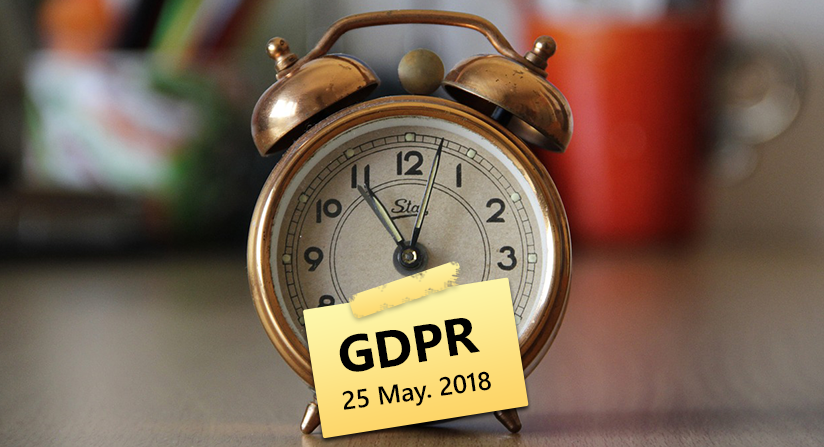GDPR has become a buzzword in recent times. Everyone is talking about this profound EU regulation that’s going to create a huge impact in the European countries.
EU General Data Protection Regulation (GDPR) is a directive that will replace the current 1998 Data Protection Act from May 25, 2018, onwards. GDPR, known to be one of the most influential pieces of regulations is designed to provide a set of consistent data protection laws for EU citizens. Having a global reach, GDPR applies to all the organizations in and outside the EU, which process data of European citizens.
What are the objectives of GDPR?
One of the crucial objectives of GDPR is to enhance data protection and give people more control over their personal data. Adopted by the European Parliament and European Council, GDPR is ready to hit the EU states in May 2018 with the objectives of –
- Improving the level of compliance for businesses– Cyber-attackers are day after day targeting big businesses. GDPR claims organizations that fail to abide by their regulatory obligations have to pay 4% of the annual global turnover or EUR 20 million (whichever is greater) as a penalty charge.
- Creating a unified approach to data protection throughout Europe– At present, all the EU states have their own set of national laws as per the 1995 EU Data Protection Directive. All the EU member states worked to achieve the same goals, however, the methods used to achieve these goals were decided by each specific country. GDPR will replace the existing regulation and will be applied equally to all the EU member states.
- Comprehensive control over the personal data of users– It is not possible for individuals to know what the employer does once the data is being collected by them. Whereas, GDPR allows the consumers to share their data, only if the consumers are comfortable with sharing their data.
Who will be affected by GDPR?
GDPR applies globally to the companies located in and outside the EU, only if they process European citizens’ personal data. These are some of the businesses affected by GDPR:
- Vendors who provide goods/services to EU residents or who monitor their performances. For example, insurance or financial services, apps/websites that use cookies and accept payment in Euros
- Information processors (from anywhere in the world) who collect and process the personal data of EU citizens such as cloud service providers, telecom companies, etc.
- Controllers responsible for transferring the personal data of European residents to other controlling bodies within Europe
How will GDPR affect manufacturing businesses?
Is GDPR a threat or an opportunity? Under this new suite of data protection laws, manufacturers have to pay special attention to personal data to include the date of birth, contact details, pension records, payroll information sent to the bank account of suppliers, customers, vendors, and sub-contractors.
Let’s have a look at how GDPR will affect the manufacturing industry:
- Processing data
Since data processing is an integral part of every business, companies can take advantage of GDPR irrespective of their base of operations. Every EU manufacturing organization has to maintain shiploads of data, including the personal data of employees. GDPR claims to safeguard this data and can improve the insights and encourage organizations to evolve.
- Obtaining the consent of the individual
The new data protection law in the EU was put into effect to protect the personal information of its citizens. Manufacturers, before processing this data, will have to consider how the consent will be obtained and learn how they can provide the option of individuals to decline. Even the simplest of information, for instance, the employee’s address, should only be obtained and processed with consent from the employee. If he or she is not willing to share the information, that’s completely fine with the GDPR.
- Right to erasure
Article 17 of GDPR proclaims that individuals are given the right to get their personal data erased from the record. You, as an employee, can request for deletion and view all of your data the company has stored.
How can ERP help businesses comply with GDPR?
For organizations to comply with this long-awaited rule, it is necessary to handle the internal customer data effectively while storing a large volume of it across multiple markets. They should invest in reliable manufacturing ERP software that can offer the ability to deal with data protection rights – data erasure and data rectification.
Once GDPR is in effect, controllers, and processors will have to mandatorily designate a Data Protection Officer (DPO). SAP, being a prominent name in the world of ERP has established a Data Protection and Privacy (DPP) team that includes auditors, attorneys, and technical personnel who supervise data protection policies and standards to give advice, conduct audits, and monitor compliance.
SAP Business One helps you comply with GDPR in the following ways –
– You can have control over the data elements and define the suitable owner of the information to ensure data security.
– It lets you address the compliance requirement in areas like supporting the removal of personal data, logging read access, and changes to the personal data.
– The updated SAP Business One 9.3 PL04 release offers an additional layer of security for authorization and security. It safeguards company data from cyber-attacks and data theft.
– As the reduced amount of data is available, performance is improved while upgrading.
– It lets you track, and record the time and date as soon as users log in.
– SAP Business One is a centralized location for maintaining and managing personal data to remove data redundancies.
– Activation of new functions (for controlling and contributing to GDPR and Data Privacy Protection compliance) is completely your decision.
Significance of GDPR for Manufacturers
It is a myth that manufacturing companies maintain a very limited amount of employees’ personal information. When it comes to the implication of GDPR, manufacturers are not exempt from it. They already support the idea of data security to safeguard their intangible assets.
GDPR is a unified framework of data protection laws that offer greater protection and rights to employees. According to a press release from Irwin Mitchell, May 30, 1994, manufacturers have initiated the preparations for GDPR which will be enforced on May 25, 2018. Worryingly, 71% of the businesses were unfamiliar with the new GDPR penalties.
As already mentioned, GDPR covers every sector of the business, wherever EU data is involved, GDPR will be imposed. Hence, manufacturers should take this on a high priority and ensure compliance methods to avoid hindrances and penalties in the future.
To know more about how SAP Business One can help your business stay compliant with the new norms of GDPR, please feel free to Contact Us.
Follow Us










